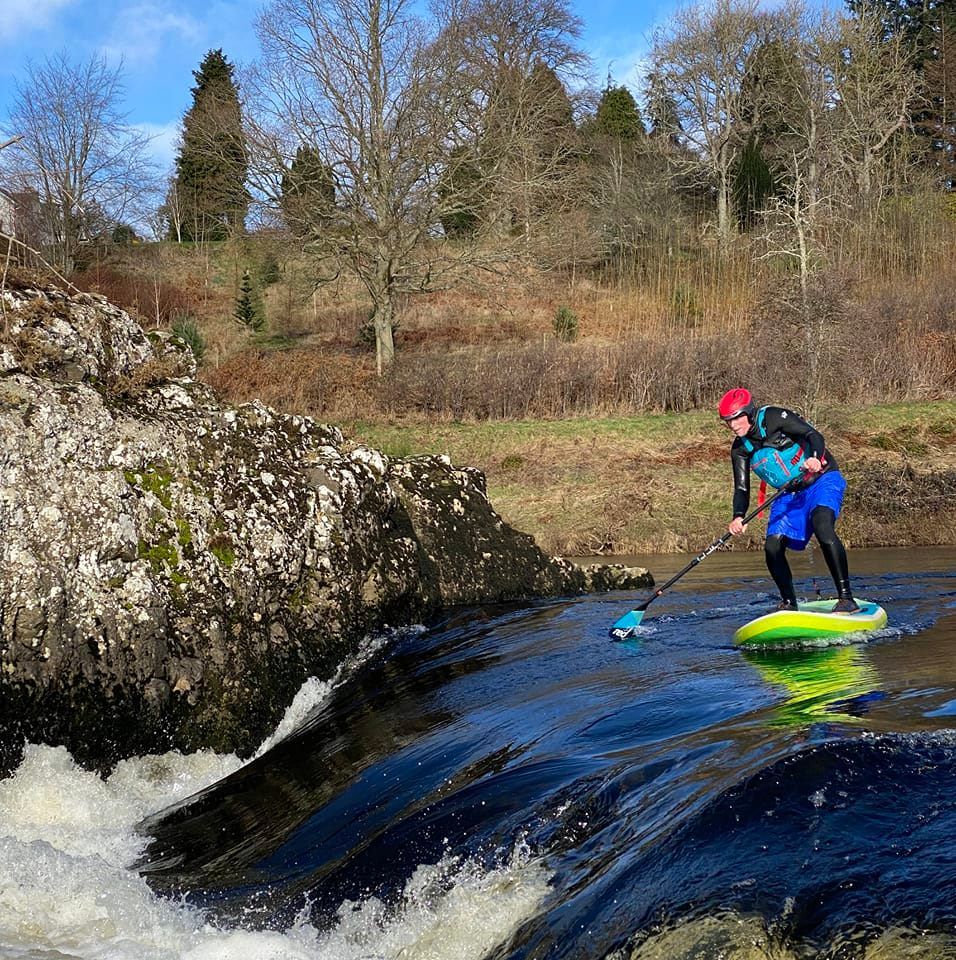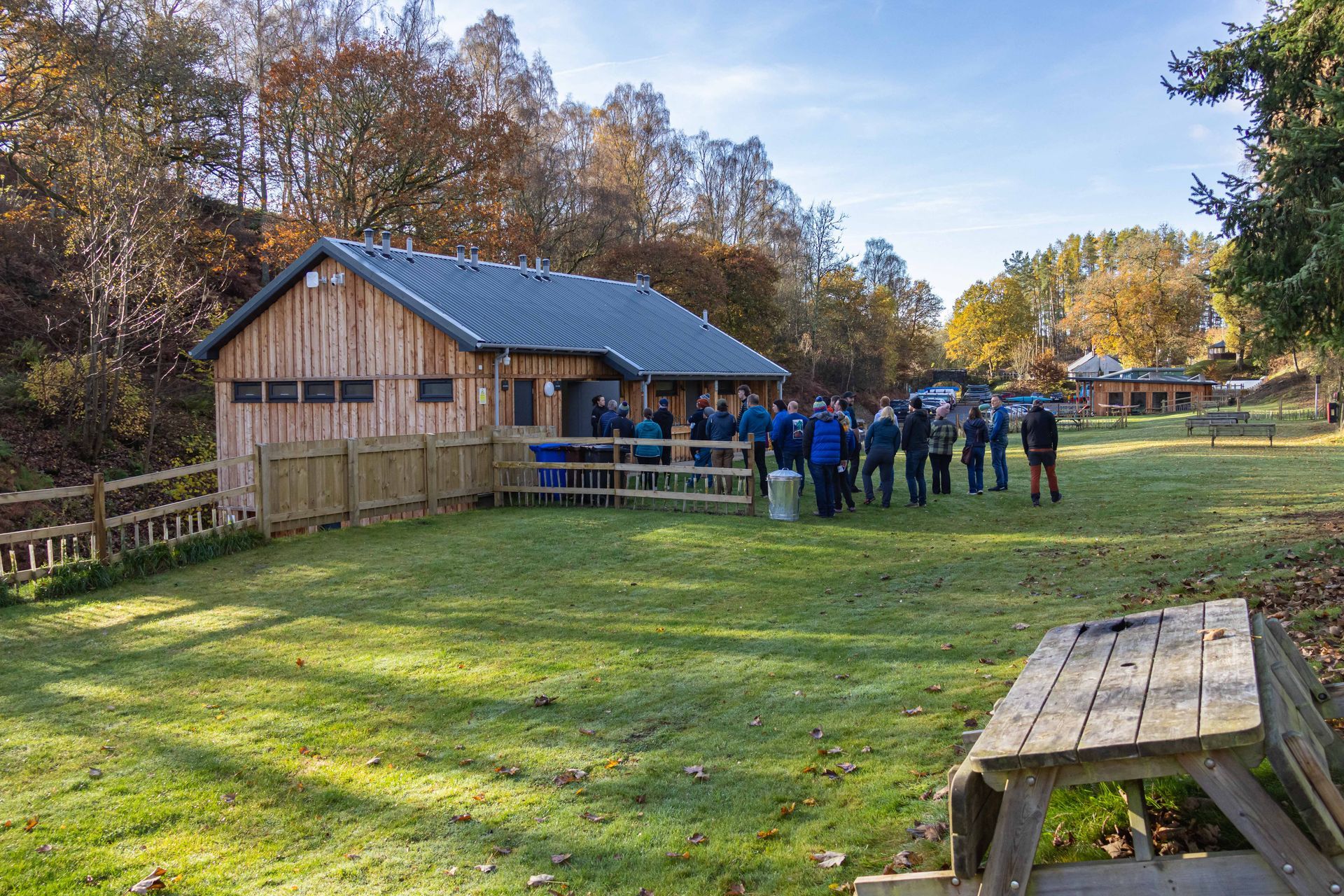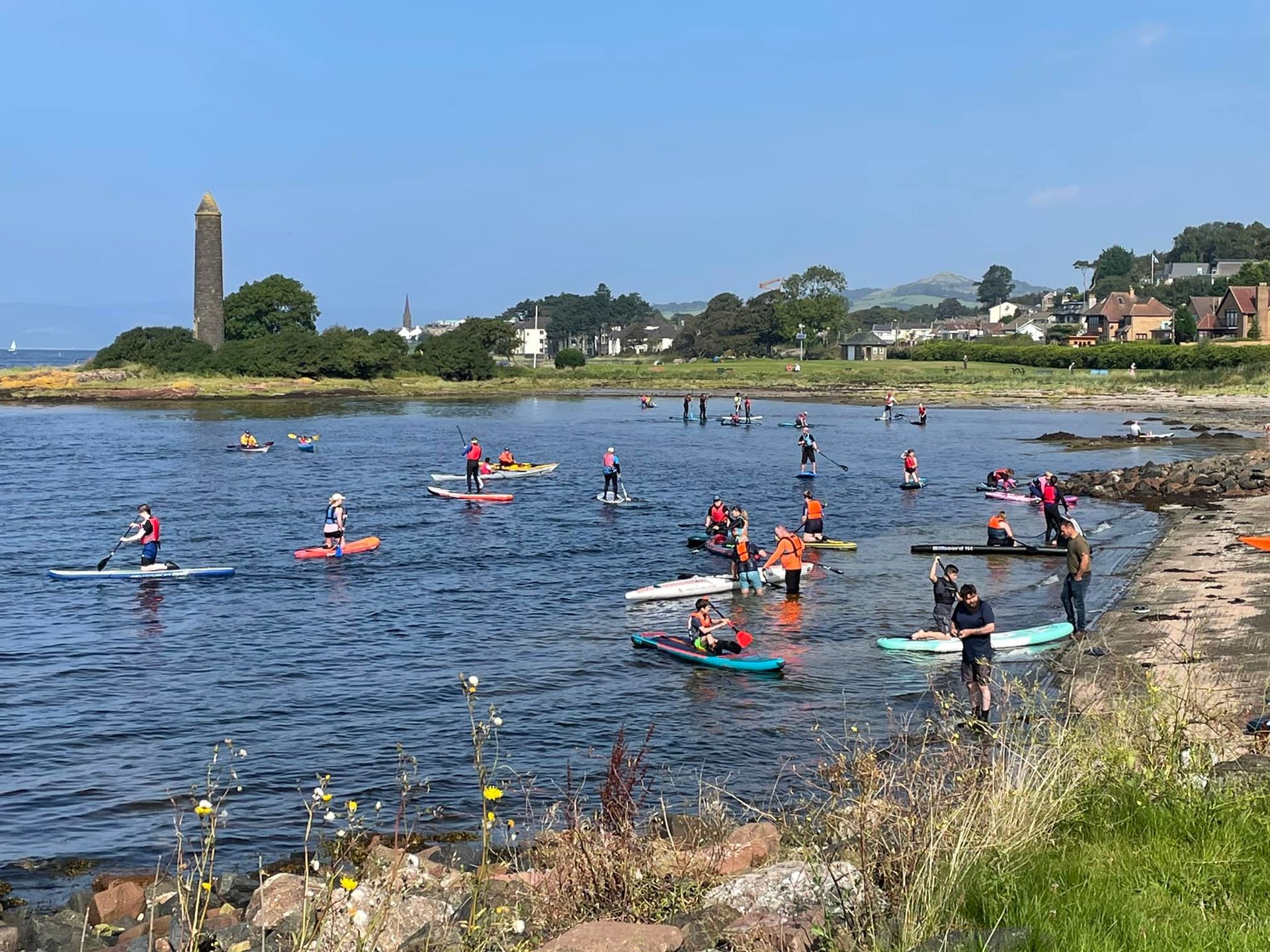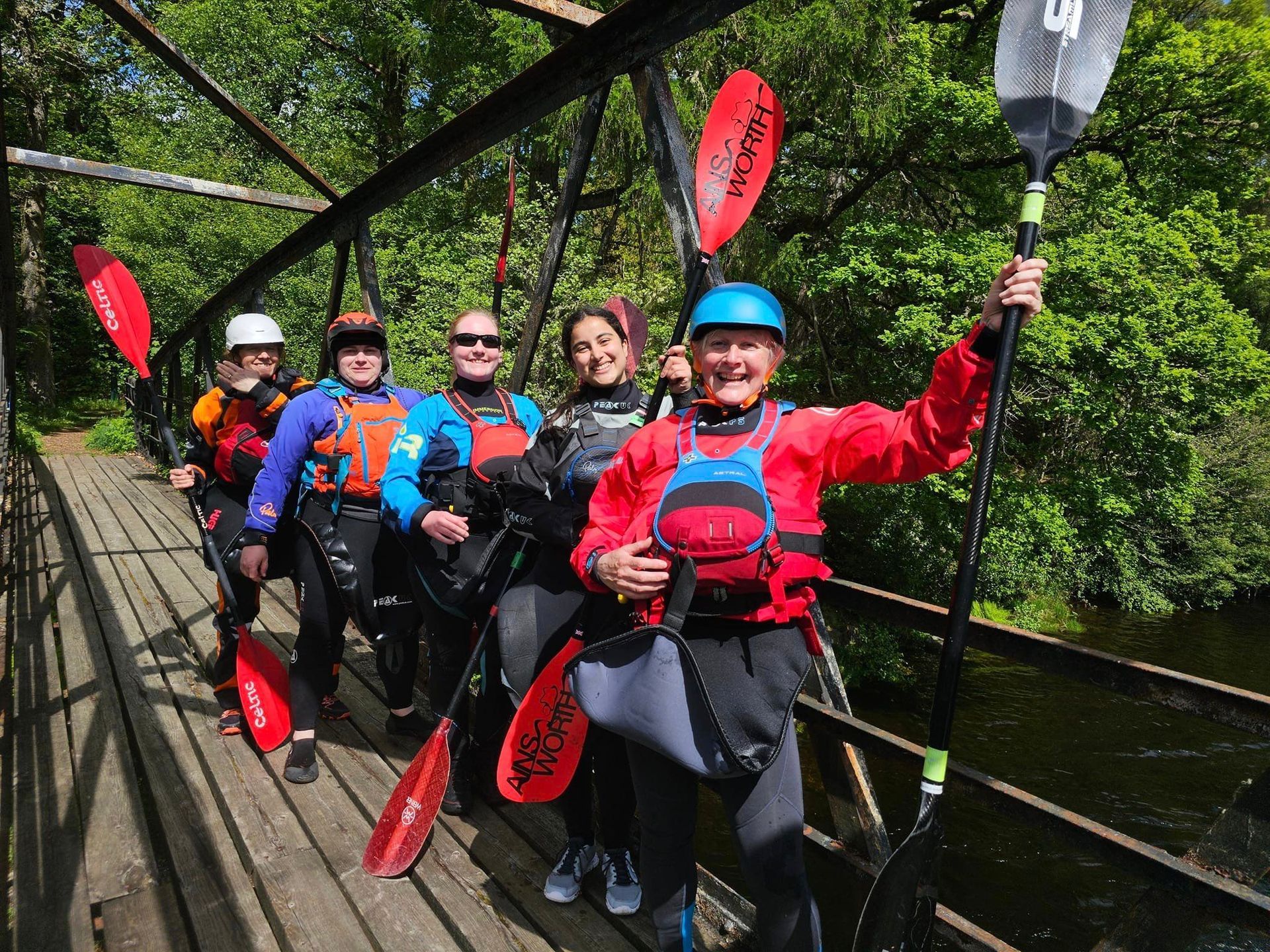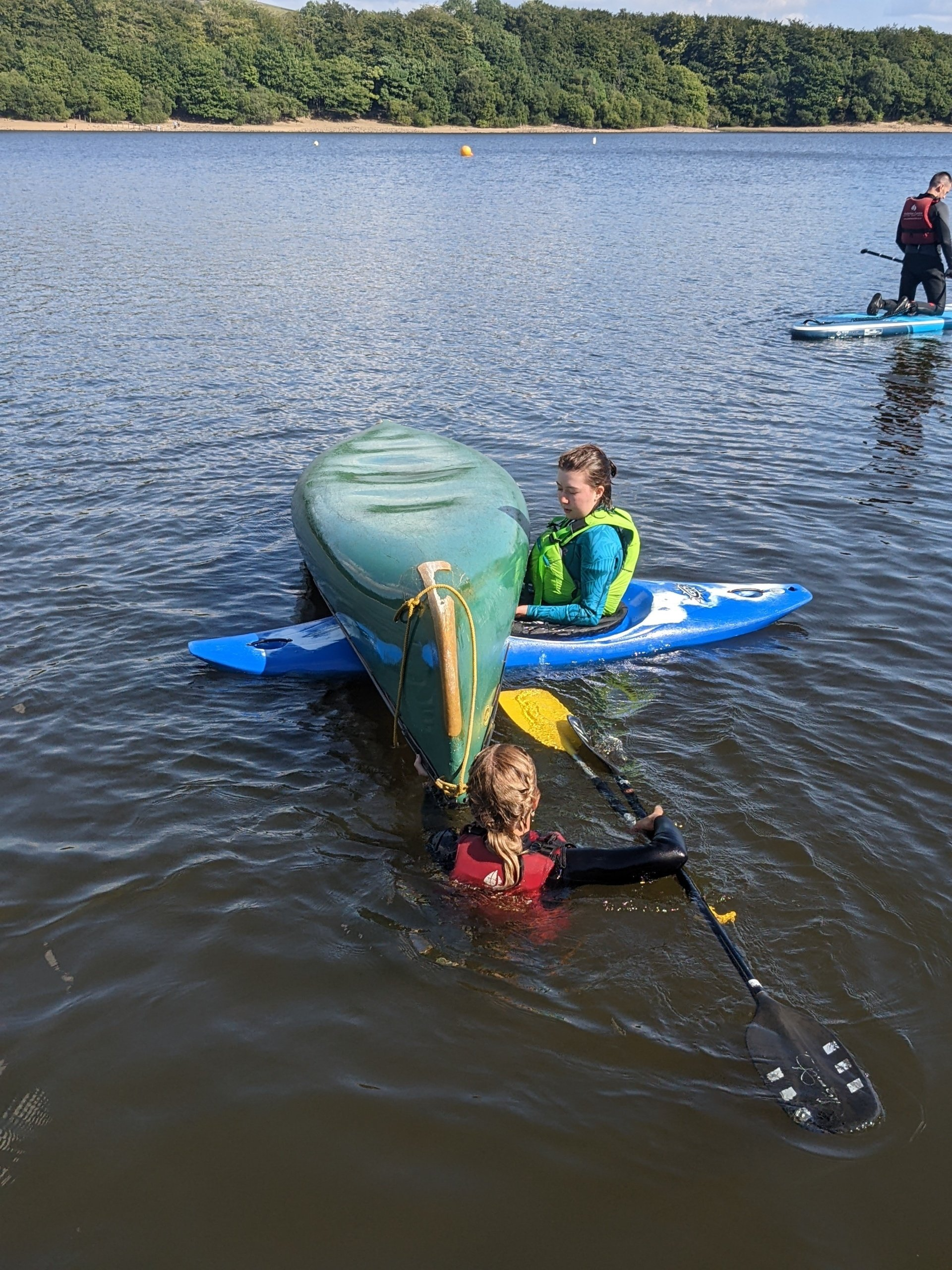My Mental Wellbeing & Paddling
Adam Burns shares what paddling means to him and how it helps support his mental health and wellbeing. This article was originally published in the April 2024 edition of the Scottish Paddler magazine.
As I’m sure is the same for many people reading this article, being out on the water and paddling is a crucial bit of my life that supports my mental health and wellbeing - without it I’m not sure where I would be now. It’s the only place where I feel safe, challenged, calm and excited all in one short period of time, allowing me to regulate myself in a way that nothing else does.
So why am I writing this article? I want to share my experiences and some conclusions I have come to over the past few years in the hope it might help others when they are on the water coaching, leading or peer paddling.
Like many people in this world I have my own personal struggles that primarily revolve around anxiety affecting my daily life and I want to share four crucial moments in my paddling career and how they affected me as a person, paddler, coach and Award provider.
The first one is really a mix of experiences from when I was younger and first started paddling white water. I can remember two very different types of paddling days. The first was about getting the best possible photo to take home and being able to say we had paddled something bigger and more gnarly! Now did I paddle some gnarly stuff? Yes. Did I paddle some big stuff and get that adrenaline rush? Yes. Was the experience a positive one? Sometimes; however, a lot of the time, I would dread going paddling and would lose focus on why I was going, forgetting that I was doing it because I enjoyed it.
On the second type of paddling day, I actually did some of my best paddling, performed to a higher level and enjoyed myself a lot more. So what was different? The atmosphere that was created was one of inclusivity, non-judgemental decision making and about what was best for the group rather than the person leading the trip. These paddles had a different feel to them: it was about playing, developing through making mistakes and laughing about it as we went. The pressure was removed and paddling performance was then increased naturally. These paddles helped me to regulate and remember why I got into a boat and what I could achieve if I wanted to.
The second thing I want to share is what I would suggest was my biggest coaching mistake. I was coaching someone on flat water with a lot of physical challenges but who also coped with a lot of anxiety. I was quick to try and coach the technical and not take care of their head. This led to minimal learning due to their capacity being focused primarily on staying alive in that environment. Once I changed my tactics and reduced the technical focus and instead focused on just chatting, the paddler’s performance increased massively. The person was able to focus on enjoying the experience rather than only thinking about the outcome, and continued to develop technical skill at the same rate they developed their regulation within the sport and environment.
The third experience came as a coach. I had been working with a young person who I had taught to kayak from beginner level to becoming a solid grade 3 paddler. The young person is an incredible paddler with so much enjoyment for the sport. One day I will never forget as a coach is when we were working hard to develop their river surfing skills. They weren’t having the best day personally and a reflection of that was that their paddling wasn’t at the normal standard. The young person very quickly became frustrated and a place that brought them a lot of happiness was turning on them in their eyes. Instead of coaching the technical I choose to coach the emotions resulting in the actions that were coming out of the young person. In short this led to the young person completing the best surf not only of the day but of their entire paddling journey.
The fourth experience was fairly recent, at Wet West Paddle Fest. I particularly remember the buzz around being part of a big SUP contingent at the festival and how excited we were to get on the river. Once we got on the river a couple things occurred to me: I was one of three WW SUP Coaches there, and I was the only provider of the award. Almost instantly I felt a pressure to perform and show that I was worthy. As you might expect, what followed was around 10 failed attempts to paddle a relatively straightforward grade 2 shoot and my frustration levels building, making me less and less able to perform or more importantly enjoy my paddling. The voice in my head was not those of others but just my own. Everyone was having fun, laughing and enjoying themselves but for some reason I wasn’t. As the next hour carried on I was able to regulate and rationalise, resulting in a much more enjoyable day spent with friends and our paddling community - the whole reason I attended in the first place.
So how have these experiences changed me and helped me to develop?
The way I coach is different; I truly believe if we don’t look after someone’s head the rest of it is pointless and so focusing on getting people in the right headspace is always my primary focus. The way I paddle is different; my focus is on exploring, discovering, trying things knowing that capsizing, swimming or falling off my board is part of a journey to improve and have more joy rather than a negative. We must remember that ‘failure’ is just part of an awesome learning journey. The people I paddle with and the aims of being out on the water have changed; I will paddle with anyone but generally choose to paddle with the people that will try, fail, laugh and support the focus of development and fun.
Simply put, every time I go paddling now, I do my best to remember why I started in the first place and why it means so much to me. I focus on the energy I want when I am out on the water and try to ensure I create that for myself and the others around me. Someone once said to me the best paddler on the river is the one having the most fun and this resonates with me every time I pick up that paddle.
